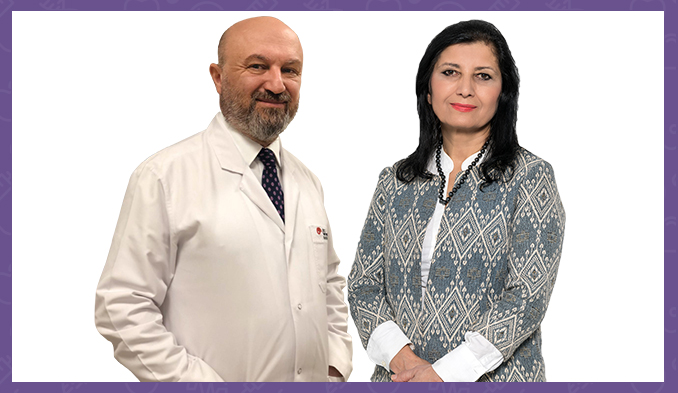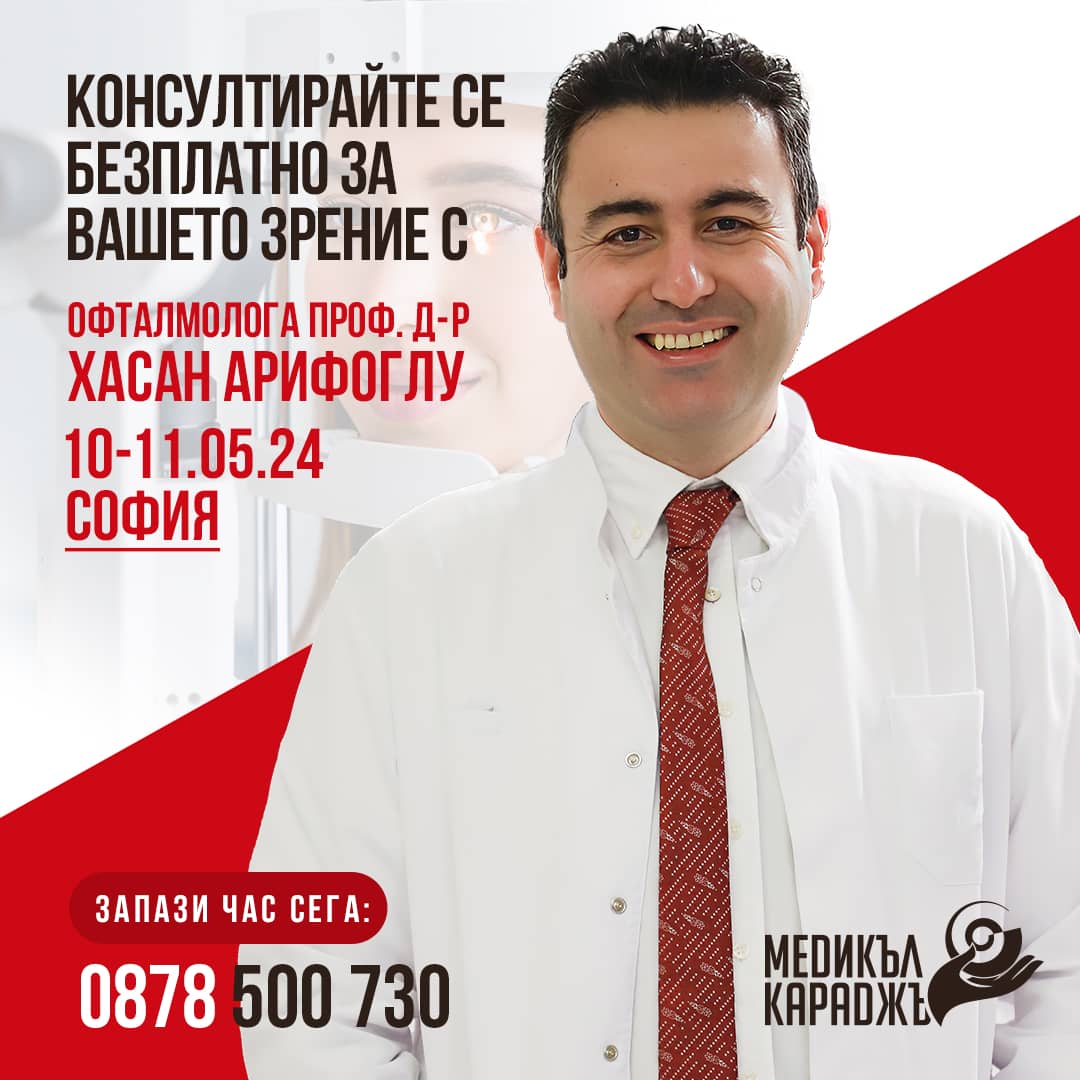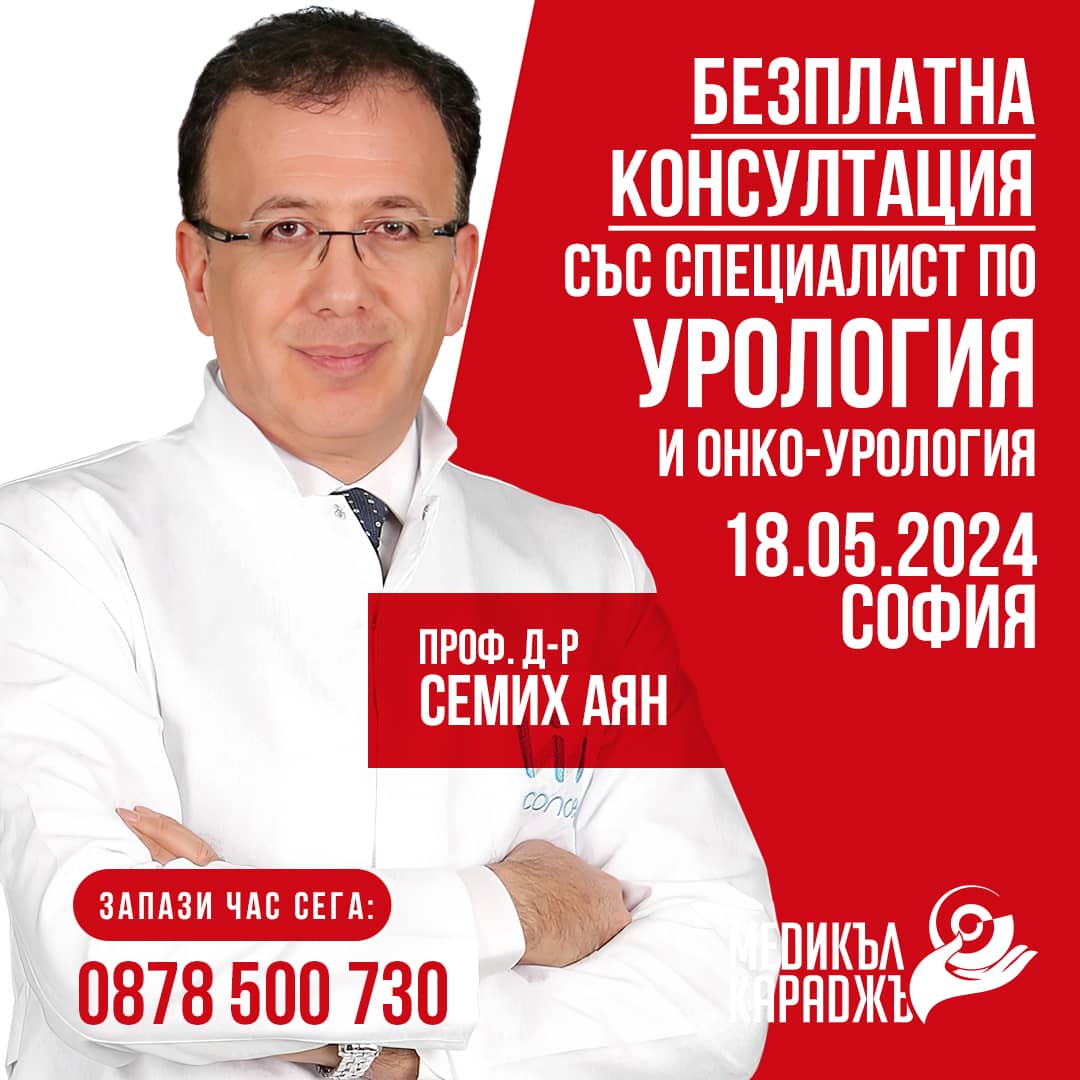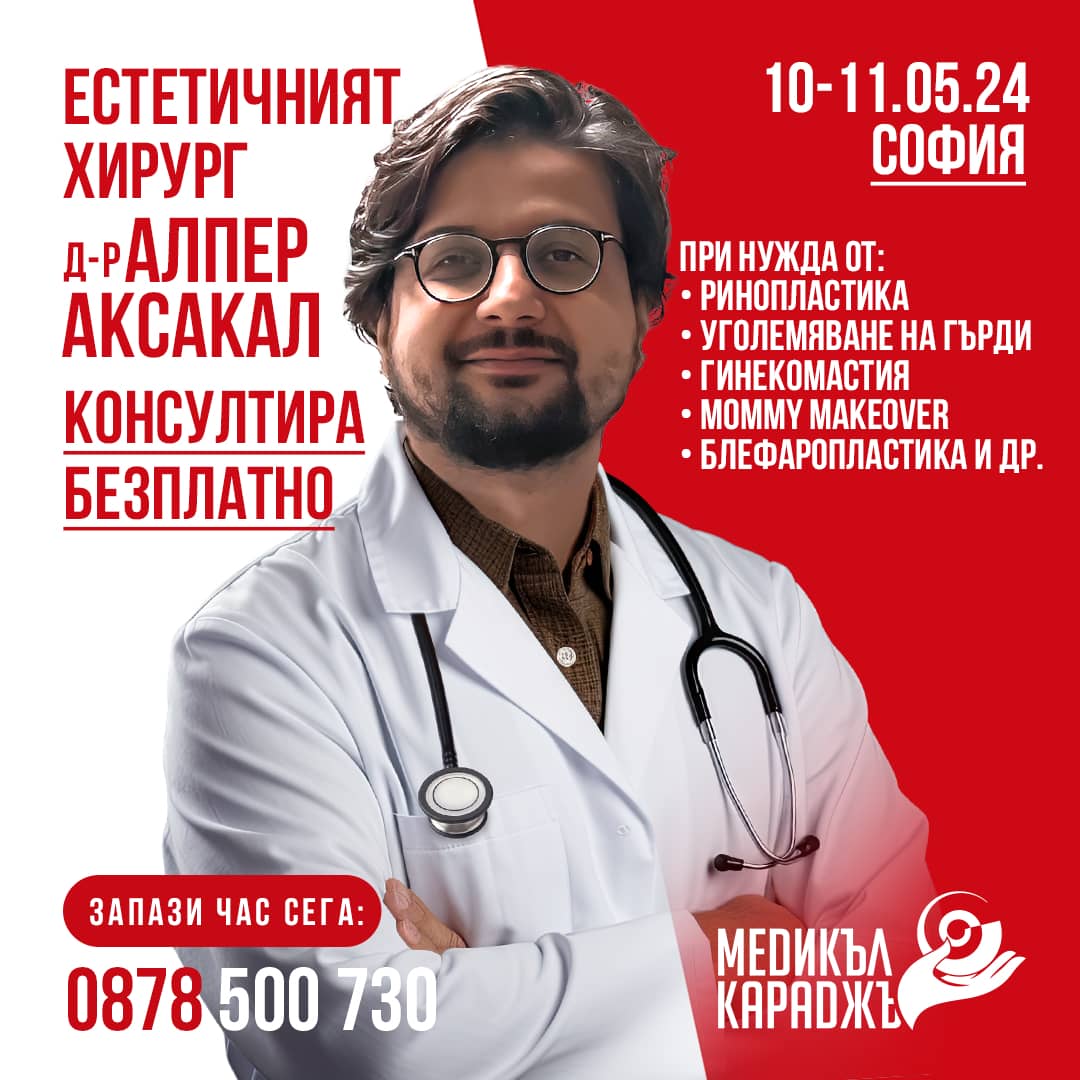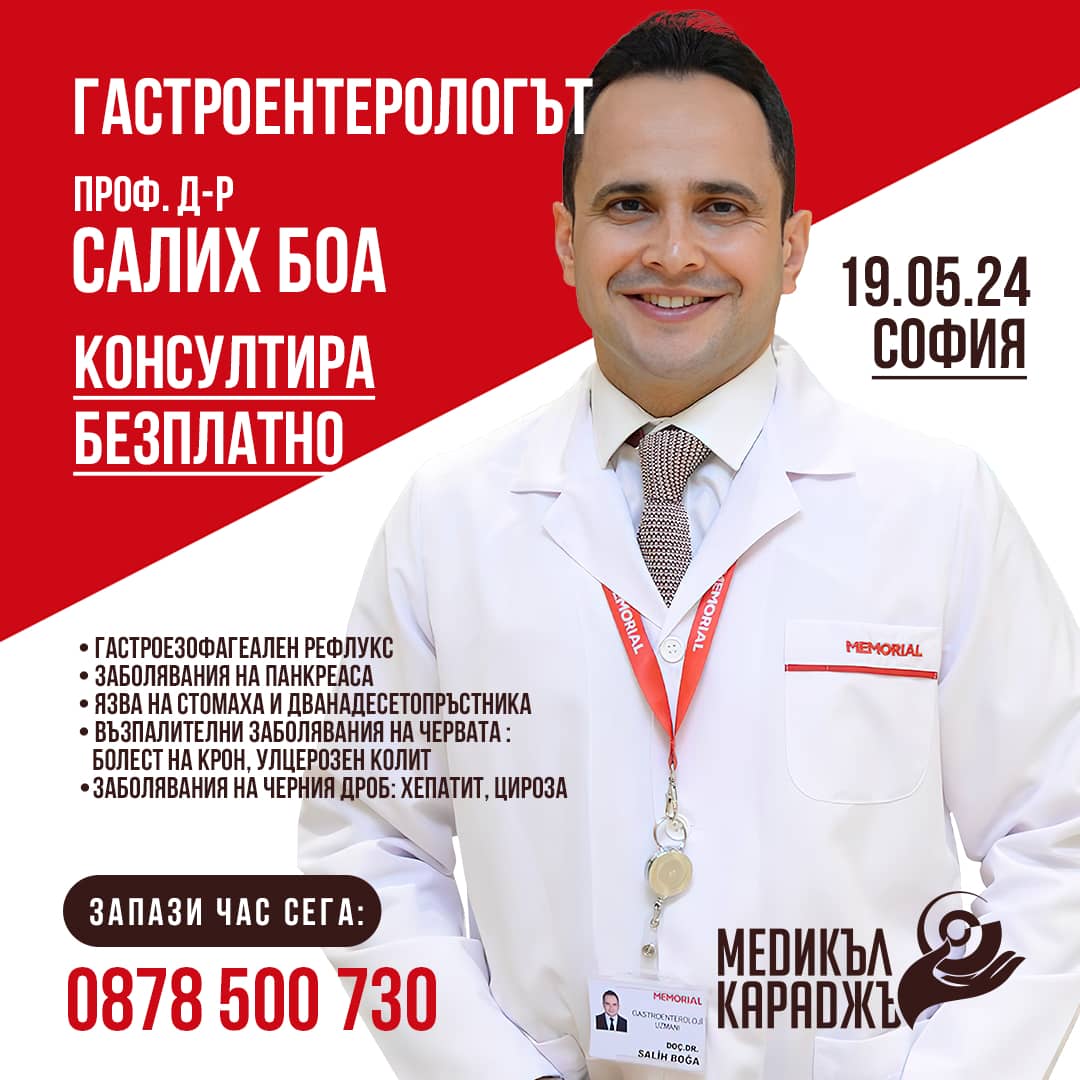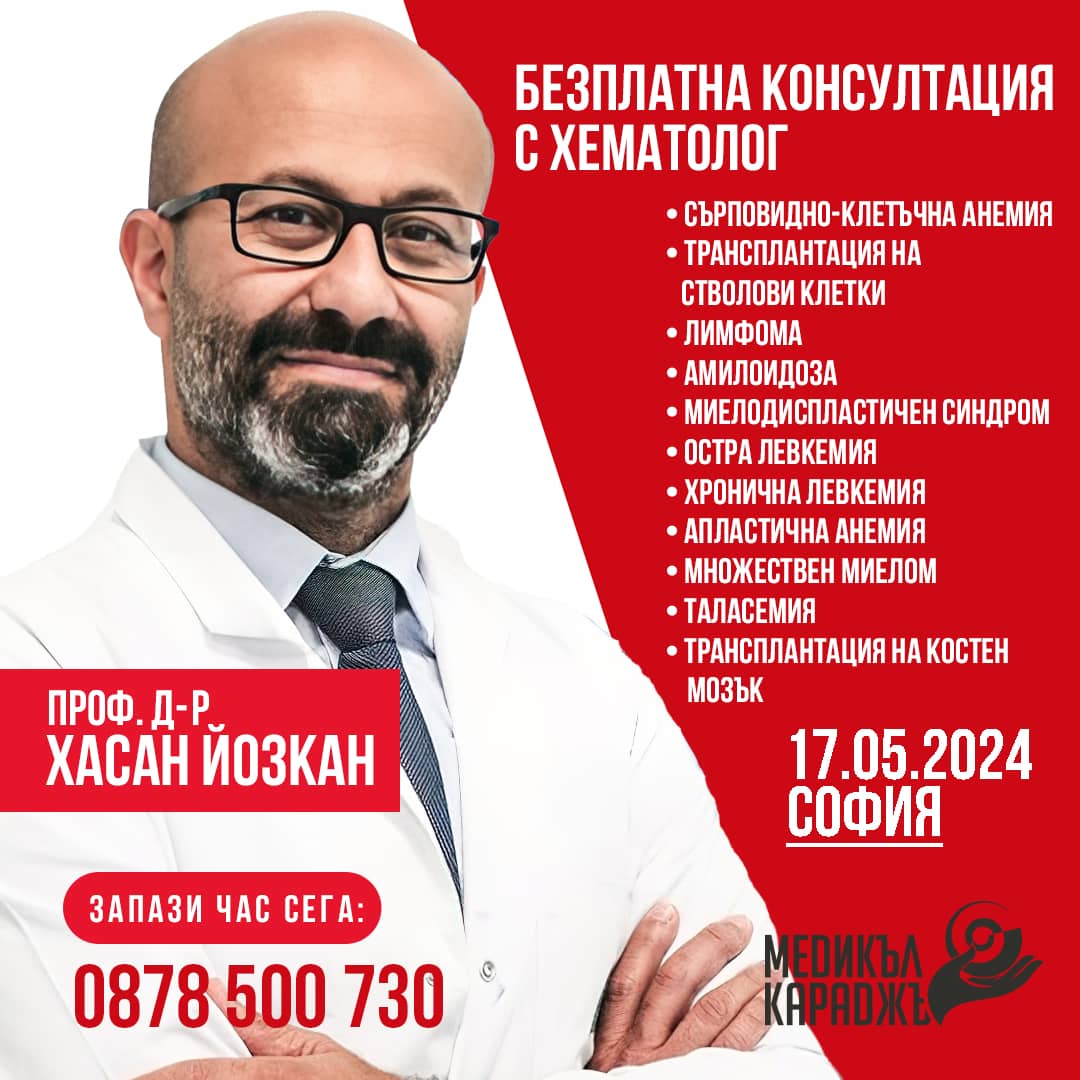On 24 and 25 January 2020, ZIC Medical Karaj will have the pleasure to welcome for the first time Turkey's most renowned radiological neurosurgeon, Prof. Dr. Selcuk Peker. Prof. Dr. Peker is coming with another member of his team, neurologist Prof. Dr. Feriha Özer, to consult Bulgarian patients suffering from neurological diseases such as Parkinson's and epilepsy free of charge. Prof. Dr. Selçuk Peker's team is one of the best in Turkey for Gamma Knife, surgical treatment of Parkinson's and epilepsy. Their visit will take place within the framework of our initiative to provide Bulgarian patients with access to the latest methods and technologies in medicine.
Who is Prof. Dr. Selcuk Peker?
Prof. Dr. Selcuk Peker was born in 1961 in Giresun. He graduated from Hacettepe University School of Medicine in 1984. He completed his specialization in neurosurgery at Hacettepe University School of Medicine in 1993. He did his residency in Gamma Knife radiosurgery at the University of Pittsburgh Medical Center. He also did another fellowship in algology and surgical movement disorders at the Oregon Health Sciences University. Since 2000, he has worked in the Department of Neurosurgery at the University of Marmara. He received the title of associate professor in 2005. Since 2005, he has been working at Ajibadem Hospital. In 2011, he became a professor at Ajibadem Medical University. Since 2016, he has been working for University Hospital of Kochi.
Prof. Dr. Pecker specializes primarily in gamma knife radiotherapy, radiosurgery, and functional neurosurgery (implantation of nerve-brain stimulators).
His work in stereotactic radiosurgery has expanded his knowledge in research related to cerebrovascular malformations, benign and malignant brain tumors, trigeminal neuralgia, epilepsy, and movement disorders.
Prof. Pecker has experience in radiosurgery with over 9000 patients for 19 years. He has published 109 articles in reputed scientific journals. He has given over 180 presentations at international and national symposia.
The professor will counsel patients with arterio-venous malformations, movement disorders and tremor in Parkinson's patients, patients with benign and malignant brain tumors, trigeminal neuralgia and epilepsy. Gamma-knife procedures are also used for pituitary tumor, vestibular schwannomas, hemangioblastomas, craniopharyngiomas, chordomas, cavernomas, metastases, uveal melanoma, hemangiopericytoma, nasopharyngeal carcinoma, etc.
What is the ICON Gamma Knife radiosurgery device and what is it used for?
Koç University Hospital has the first ICON radiosurgery machine for large brain tumours in Europe and the Middle East. This is the most innovative and advanced treatment for patients. The treatment of brain tumours with the latest generation ICON gamma knife does not require surgery. Uniquely, the device is also suitable for patients with tumors over 3.5 cm.
A gamma knife is used to direct low-energy radioactive rays to the area of disease inside the skull without damaging healthy brain tissue. First used in 1968, the Gamma Knife is now used in around 330 centres worldwide. According to 2017 statistics, more than one million patients with various brain diseases have been treated with the gamma knife.
The ICON Gamma Knife available at Koch University Hospital is the newest and most advanced model to date.
The CT scanner is integrated into the gamma knife apparatus and treatment can be administered without metal frames if necessary. A mask is used to stabilize the patient's head instead of a metal frame. In addition, some tumors that are located in critical or large areas of the brain can be treated with it, and the risk of side effects from radiation is minimal.
The procedure eliminates the need for anesthesia and resuscitation and takes only a few hours. An advantage of gamma knife treatment is also the lack of need for hair trimming and the patient's quick return to work. People can return to their normal routine the very next day of treatment.
Who is Prof. Dr. Feriha Özer?
Prof. Dr. Feriha Özer completed her training at the Department of Neurology at Gazi University, and later served as a senior assistant at Ankara Numune Teaching and Research Hospital and Bakırköy Teaching and Research Hospital for Mental and Neurological Disorders. She founded the Parkinson and Movement Disorders Outpatient Clinic at Bakırköy Mental and Neurological Disorders Teaching and Research Hospital. In 1998, she became the head of the Neurology Clinic of the Haseki Teaching and Research Hospital. In the same hospital, she again founded the outpatient clinic for Parkinson and movement disorders. In 2012, she started working as a professor at the Department of Neurology of the Faculty of Medicine at Ordu University and became the head of the department. He worked at the University of Medipol between December 2014 and 2017. In December 2017, he started working at the University Hospital of Koch.
Prof. Dr. Yoser leads treatment teams for Parkinson's disease, essential tremor, Wilson's disease, cerebrovascular disease, diabetic polyneuropathy and headaches. For many years he was vice president and a member of the board of directors of the Parkinson's Disease Association. She has been involved in organizing scientific meetings and patient meetings. She has 40 publications in international journals, 150 publications in national journals and book chapters on Parkinson's disease, essential tremor, Wilson's disease and diabetic polyneuropathy.
What is Parkinson's disease?
Parkinson's disease is a disease that develops slowly and insidiously. It occurs with the deficiency of a substance called dopamine in the brain. The disease, which proceeds with symptoms mostly such as trembling of the hands, stiffness of the muscles and slowness of movements, occurs in one in 100 in persons over 70 years of age. It is a long-term and invasive disease. Initially, medical treatment is administered. In some patients, the response to medical treatment declines increasingly over the years. This period may be different for each patient. By stimulating with electrical activity the structures located in the head, through the insertion of a brain battery, the aim is to make life easier for patients who have difficulties caused by this disability and to bring them to a state in which they can carry out their daily activities.
What is essential tremor?
Essential tremor is an uncontrollable shaking of the hands, head and legs. Essential tremor, which can occur at any age, is the most common movement disorder.
What is dystonia?
Dystonia is a movement disorder that manifests with involuntary muscle contractions and causes constant twisting and turning of the body. This disease, which negatively affects patients' quality of life, is more common in children and young adults.
Methods of surgical treatment
When medications prove insufficient in treating movement disorders or adverse side effects caused by medications occur, surgical operations may be used. The movement disorders for which most surgical interventions are used are Parkinson's disease, dystonia and essential tremor. The patient is evaluated by physicians specializing in neurology, brain surgery and psychiatry who form the movement disorders team. They look at his past medical history, medications he has used and treatments he has undergone. Treatment is administered to those patients who are judged to benefit from surgical intervention.
There are basically three types of surgical methods:
- Deep Brain Stimulation (Brain Battery) - In the Deep Brain Stimulation procedure, which is also called Brain Battery, a very thin electrical cord is placed in the centres responsible for motor disorders and a constant electric current is applied. In this way, an improvement in the patient's complaints is achieved. The brain battery is applied by targeting the thalamus (in tremor), the pallidum (in Parkinson's disease and dystonia) and the subthalamic nucleus (in Parkinson's disease). The most important advantage of the brain battery is that it does not cause any tissue damage. According to the patient's needs, the electric current supplied by the battery can be adjusted and thus the patient's complaints can be controlled. The battery, which is placed under the collarbone, should be replaced on average once every 4-5 years. In recent years, this method has become the preferred method for surgical treatment of movement disorders.
- Lesion surgery (RF thermocoagulation) - Another method applied in the treatment of motor diseases is lesion surgery. In this method, a small hole is made in the skull, a small needle is inserted into the problem centre in the brain and by inducing heat into the needle tip, this area is destroyed. This method, which has been used for many years now, is used for Thalamotomy (for tremor), Pallidotomy (for Parkinson's disease and dystonia) and Subthalamotomy (for Parkinson's disease). A rapid response is obtained after the procedure.
- Radiation surgery with Gamma Knife - Gamma Knife beam surgery can be applied in the treatment of movement disorders. Gamma knife can be used for thalamotomy and subthalamotomy. The advantage of the gamma knife lies in the fact that the rays can be redirected to the desired area from the outside without any surgical operation. In this way, the patient can protect himself from the side effects of surgery. However, to see the effect of the treatment, one has to wait for a few months. In patients who have diseases in the head or systemic diseases, the Gamma Knife can be applied with high confidence.
Each surgical method has its own advantages and disadvantages. The doctor decides which method is suitable for the patient.
Read more about Koç University Hospital here:
https://www.medikara.bg/kplus_page/universitetska-bolnitsa-koch
All patients with neurological diseases and movement disorders who wish to take advantage of the opportunity for free consultations with Prof. Dr. Selçuk Peker and Prof. Dr. Feriha Özer in Sofia on 24 and 25 January 2020, should make an appointment in advance by calling the Health Information Centre of Medical Karadži: 0878 500 940 or 0879 977 402.
Please note that no examinations will be carried out during the consultation. Free consultations are based on the medical records currently available to the patient. Patients should bring their epiturals and current lab work, and imaging.

